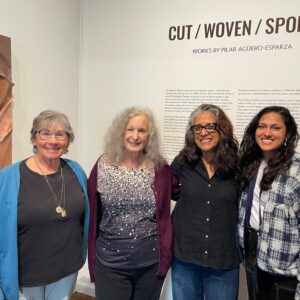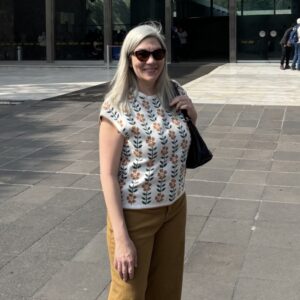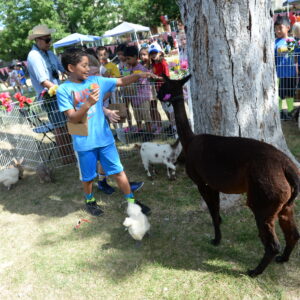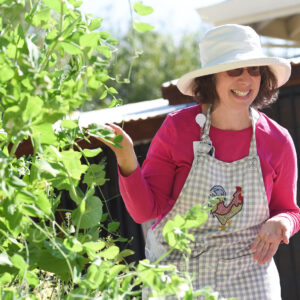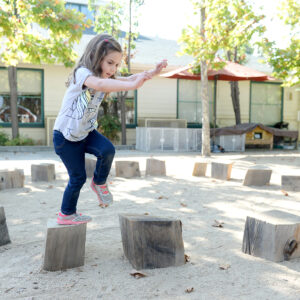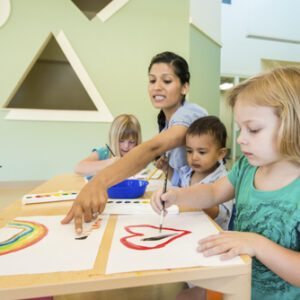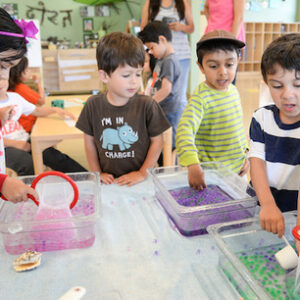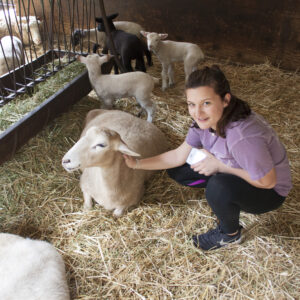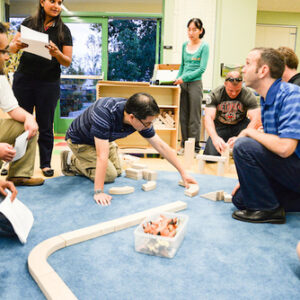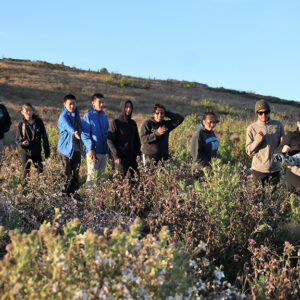This article originally appeared in the winter 2014 Harker Quarterly.
Students, parents and teachers agree that the area affectionately known as “the farm” at Harker Preschool is a very special place. This spacious, tree-shaded area on the Union campus enables the children to spend quality time in nature.
The preschoolers take pride in maintaining the farm, which is home to two adorable rabbits and boasts a garden filled with vegetables, herbs and fruit. In the farm’s center is a circle of tree stumps, providing the perfect outdoor classroom. During visits to the farm, students engage in such activities as rabbit feeding, gardening, water pumping, leaf raking and sweeping.
The farm is supervised by the preschool’s STEM (science, technology, engineering and mathematics) specialist, Robyn Stone, who is also a science/math instructor for the University of California, Santa Cruz Extension. Stone explained that the farm is regularly used by all the students, from the 3- and 4-year-olds in the cottage classrooms to the older children in transitional kindergarten (TK).
“Farm work enables the children to see their own impact on the environment,” said Stone, noting that some examples of learning by doing include the children saving vegan lunch scraps to feed to the rabbits and worms, helping them grow.
“Our newest cool thing is a piece of technology: a pump that enables the students to draw water from a well for the garden, helping them understand that water is precious and not to be wasted in a time of drought,” Stone noted.
The children notice change and make observations about size color, texture and quantity as the plants grow from sprout to flower to fruit, explained Stone. “It is my hope that, in seeing, touching, smelling and tasting the results of their work, the students will develop respect and reverence for nature,” she said.
While all the preschool classrooms have frequent opportunities to use the farm with their teachers, Stone added that her STEM lab makes further use of the area for specific hands-on science lessons. For example, chickens were incubated in the STEM lab. Now the children are enjoying watching the chickens change and grow on the farm.
Stone believes that having both chickens and rabbits onsite provides youngsters with opportunities for learning responsibility and empathy through animal care. Indeed, taking care of the farm’s bunnies has already proven to be a huge hit for both the cottage and TK students.
Three-year-old Charlie Kalko said he likes to “put carrots in the bunny cage nice and gently.”
His classmate, 3-year-old Aila El-Charif, added that during a recent visit to the farm she “ate tomatoes and snap peas and pet the bunny and rode a (pretend) pony.”
Meanwhile, 5-year-old Avi Gupta said he enjoys outings to the farm because “I like the rabbits.”
“Whether as part of an outing during STEM time or during a routine visit with their classroom teachers, all of the preschoolers look forward to spending time on the farm,” said Andrea Hart, director of Harker Preschool.
In addition to the STEM lab, other specialty classes include art studio, music and movement, and library. All of the classes are rich with activity centers and educational materials, offering a balance between child-directed exploratory learning and teacher-directed activities.




